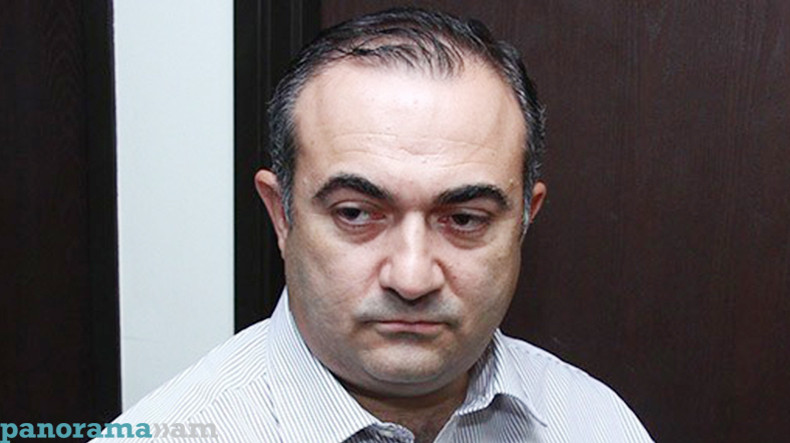
Untargeted statements of international structures do not matter to Azerbaijan: analysis
By Lala Ter-Ghazaryan
The Azerbaijani shooting on June 16 claimed the lives of three Karabakh servicemen. The shooting persisted on the next day as well, resulting in the death of another Armenian soldier. The Armenian side announced about its intention of taking inadequate and targeted retaliatory actions, which was immediately followed by the statements of the OSCE Minsk Group, the representatives of the EU, the UN and other international structures.
Panorama.am has talked to political analyst Tevan Poghosyan, over the calls in the above-mentioned statements, their causes and results.
- Mr. Poghosyan, what are such responses of international structures based on?
- In this way the international community is trying to voice its concerns to prevent Azerbaijan from further escalating the situation [on Karabakah-Azerbaijan Line of Contact] and to make the country respect the ceasefire regime. In addition to this, it also stems from another issue; for more than a year Azerbaijan hinders the implementation of Vienna and St. Petersburg agreements. Therefore, these international structures are trying to assist the Minsk Group, showing that the conflict is also under the spotlight of other structures than the Minsk Group. The statements come as a message to the parties, showing that not only the OSCE MG Co-Chairing countries, but also all the other states seek a resolution to the conflict, supporting the efforts of the Co-Chairs.
- Will these statements give any results?
- This is not the first time that such series of statements are issued. The same thing happened when an Armenian helicopter was downed. Almost all the countries worldwide called on Azerbaijan to allow the dead bodies to be removed at least, however that country did not take any action. It was carried out only through the measures taken by the Defense Army. The experience shows that such statements do not leave any impact on Azerbaijan, since they are used to the statements with such content. Unless we see targeted statements pointing out possible sanctions to be imposed against that country, these statements will not have any significance for Azerbaijan, even when they come with hundreds and thousands.
- What do you think, why targeted statements are not made?
- Everyone has their own interests. They want to adopt a neutral stance, since they have their own affairs with Azerbaijan and Turkey. The Nagorno-Karabakh conflict is not number one issue in their agenda. In order to show that they manage to do their job as international organizations, they release statements, showing to be attentive. However, they themselves know that such statements will not be of any use, as they are dealing with Azerbaijan.
We must realize that we need such statements in the diplomatic domain. Meantime we must warn the world that the only guarantors to maintaining the ceasefire and restraining the Azerbaijani aggression are the Artsakh Defense Army and the Armenian Armed Forces.
- The EU spokesman called the status quo unsustainable, do you share this view?
- It depends on what they mean with the status quo; the thing that Azerbaijan is shooting every day and the Armenian side is responding, or another thing. I can only make comments when they explain their perception of the status quo. In this case, I understand the status quo in the following way: there are agreements on introducing surveillance mechanisms and expanding the observation mission agreed by Azerbaijan at Vienna and St. Petersburg summits. They fail to be implemented. In this respect, the agreements must be fulfilled. The ceasefire agreed between the Armenian and Azeri representatives in 1994 must be adhered to, with the violator facing a punishment. Such kind of status quo is unacceptable for me. When the EU explains how it perceives the notion, then we can say whether or not it is acceptable for us.
- The international organizations called on the parties to re-engage in negotiations.
- It will be great. There are preconditions voiced by the Armenian side on numerous occasions. The Vienna and St. Petersburg agreements are exactly about the thing that it will be possible to re-engage in political dialogue when surveillance mechanisms are installed that will somehow contribute to enhancing the trust between the sides. Before this I cannot imagine what they [parties to the NK conflict] can discuss when back to the negotiating table.
- Do these statements that follow one another prove that the situation is tense or we are on the brink of war?
- We are in the middle of war, not on the brink of it or far from it. We are fighting a war. There are days of escalation and peaceful days. The war is not over, especially from the Azerbaijani side. They are always announcing that the Armenians are their enemies and they must be eliminated: it is a war. What is the difference of fighting it on the frontline, in the international domain or in the economy?
Regarding the possible escalation on the frontline, the only guarantor to prevent escalations and large-scale operations is the powerful Armenian army. The matter is if we will manage to develop our democratic institutions and economy, to further modernize and strengthen our army, such actions will not take place. At any moment Azerbaijan feels that it overpowers us event slightly, it will immediately take actions. The sabotage infiltration attempted by them yesterday comes to prove this. It seems to them that if they manage to capture a mentally ill person who crosses their border, they also can attempt a subversive attack. However, the Karabakh forces took retaliatory actions.
Newsfeed
Videos






























